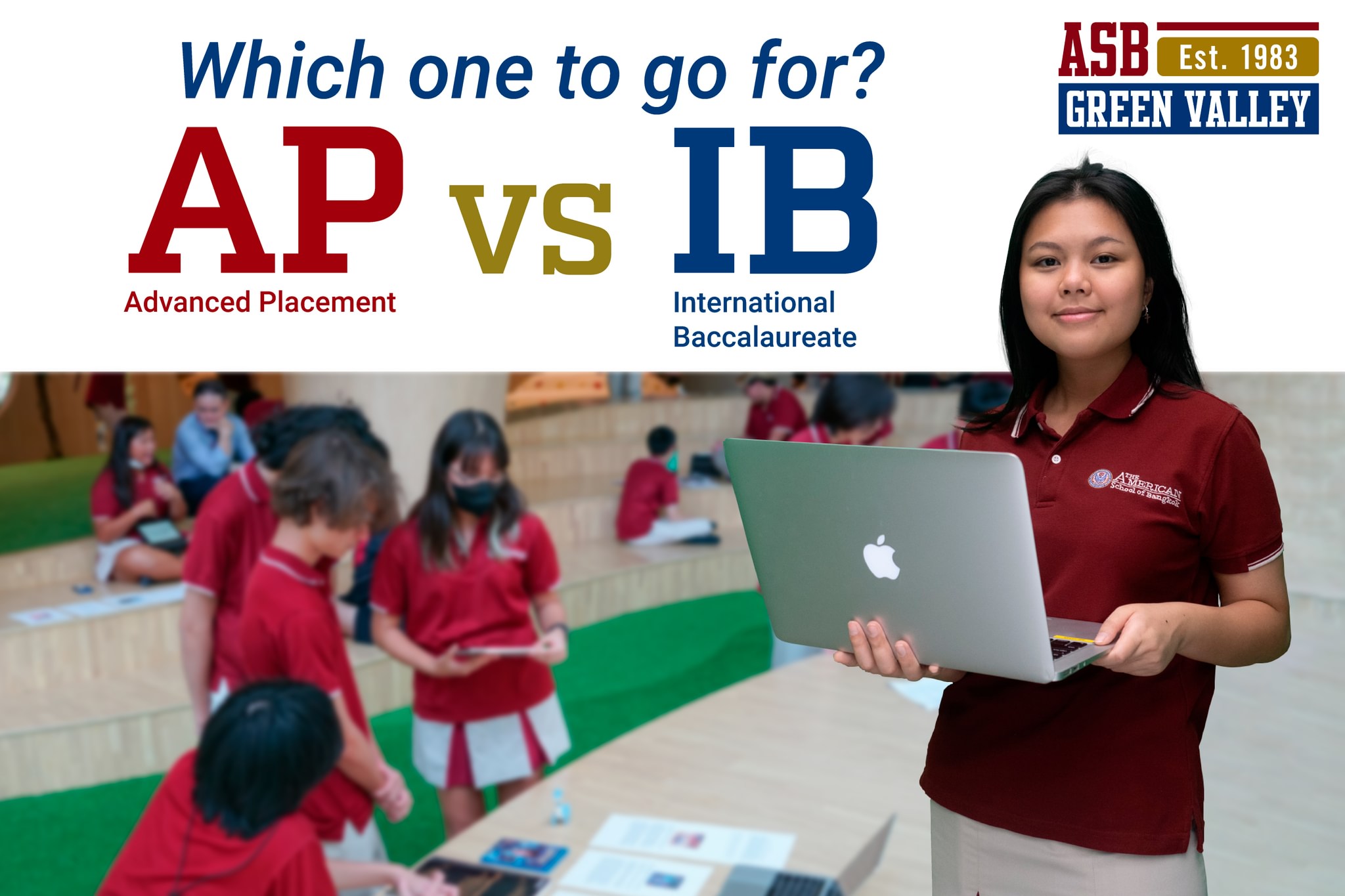
Deciding which diploma program to pursue during your high school years can be a daunting task. Two popular diploma programs that offer rigorous coursework and advanced learning opportunities are the Advanced Placement (AP) Capstone Diploma and the International Baccalaureate (IB) Diploma.Let’s explore the differences between these two programs, their pros and cons, and some useful information to help you make a choice.
The AP Capstone Diploma and IB Diploma are both internationally recognized programs that are highly regarded by colleges and universities around the world. They are designed to provide high school students with a challenging and comprehensive education that prepares them for college-level coursework. However, there are some key differences between these two programs.
Curriculum: The AP Capstone Diploma is a program offered by the College Board, which also administers the AP exams. It consists of two courses: AP Seminar and AP Research. These courses are interdisciplinary and focus on research, critical thinking, and communication skills. In addition to these two courses, students are required to complete at least four other AP courses of their choice. On the other hand, the IB Diploma is a comprehensive two-year program that includes six subject groups: language and literature, language acquisition, individuals and societies, sciences, mathematics, and the arts. Students are required to take at least one subject from each group, complete an extended essay, participate in creativity, activity, and service (CAS) activities, and take a theory of knowledge (TOK) course.
Assessment: The assessment methods in the AP Capstone Diploma and IB Diploma differ significantly. In the AP Capstone Diploma, students are assessed through individual and team projects, presentations, and written exams. In the IB Diploma, students are assessed through a combination of coursework, exams, extended essays, and the theory of knowledge (TOK) course. The IB Diploma also requires students to complete a minimum number of CAS activities, which involve community service, creative pursuits, and physical activities. The assessment methods in both programs are rigorous and require students to demonstrate their understanding and application of knowledge and skills.
Recognition: Both the AP Capstone Diploma and IB Diploma are recognized by colleges and universities worldwide, and can be beneficial in the college admissions process. However, the level of recognition and acceptance may vary depending on the region or country. In some countries, such as the United States, AP courses and exams are widely accepted and can potentially earn students college credit, while in other countries, the IB Diploma may be more commonly accepted. It's important to research the recognition and acceptance of these programs in the countries or regions where you plan to apply to college or university.
Pros and Cons of AP Capstone Diploma and IB Diploma:
AP Capstone Diploma:
Pros:
- Flexible curriculum that allows students to choose courses based on their interests and strengths.
- Opportunity to earn college credit through AP exams.
- Recognized by colleges and universities worldwide.
- Focuses on research, critical thinking, and communication skills.
Cons:
- Limited coursework compared to the IB Diploma, which may not provide a well-rounded education for students who are interested in a broad range of subjects.
- May require students to self-study for additional AP exams beyond the AP Seminar and AP Research courses.
- AP exams can
- be challenging and may require additional preparation outside of regular coursework.
- May not be as widely recognized or accepted in some countries or regions compared to the IB Diploma.
IB international baccalaureate Diploma:
Pros:
- Comprehensive curriculum that covers a wide range of subjects, providing a well-rounded education.
- Emphasis on global perspectives, critical thinking, and interdisciplinary learning.
- Opportunity to earn college credit through IB exams.
- Recognized by colleges and universities worldwide, particularly in countries outside of the United States.
- Requires participation in CAS activities, promoting community service, creativity, and physical activity.
Cons:
- Less flexibility in course selection compared to the AP Capstone Diploma, which may limit students' ability to focus on specific interests or strengths.
- More coursework and assessments, which can be demanding and time-consuming.
- Extended essay and theory of knowledge (TOK) course may require additional effort and preparation.
- May have a steeper learning curve for students who are not used to the IB curriculum or assessment methods.
How to Pick which Diploma:
When deciding between the AP Capstone Diploma and IB Diploma, it's important to consider your academic strengths, interests, and future goals. Here are some tips to help you decide:
- Consider your interests and strengths: If you have a specific area of interest or career goal in mind, you may want to choose a program that offers coursework and assessments that align with those interests. For example, if you're interested in science or engineering, the AP Capstone Diploma may allow you to focus on AP science courses.
- Consider your learning style: Both programs have different teaching styles and assessment methods. If you prefer a more flexible curriculum with the ability to choose courses based on your interests, the AP Capstone Diploma may be a better fit. If you enjoy interdisciplinary learning and are willing to take on a more comprehensive curriculum, the IB Diploma may be a good option.
- Consider college and university requirements: Research the admission requirements of the colleges and universities you're interested in. Some colleges or universities may have preferences or specific requirements for one program over the other.
In conclusion, both the AP Capstone Diploma and IB Diploma are rigorous programs that offer advanced learning opportunities for high school students. They have different curriculum, assessment methods, and recognition, and it's important to consider your interests, strengths, and future goals when making a decision. Researching and understanding the pros and cons of each program, as well as considering your learning style, workload, and college or university requirements, can help you make a decision on which diploma program is the best fit for you. Ultimately, the key is to choose a program that aligns with your interests, goals, and abilities, and will provide you with the education and preparation you need for your future academic and career endeavors. So, carefully evaluate your options and make a decision that will set you up for success in your academic and professional journey. Good luck!


